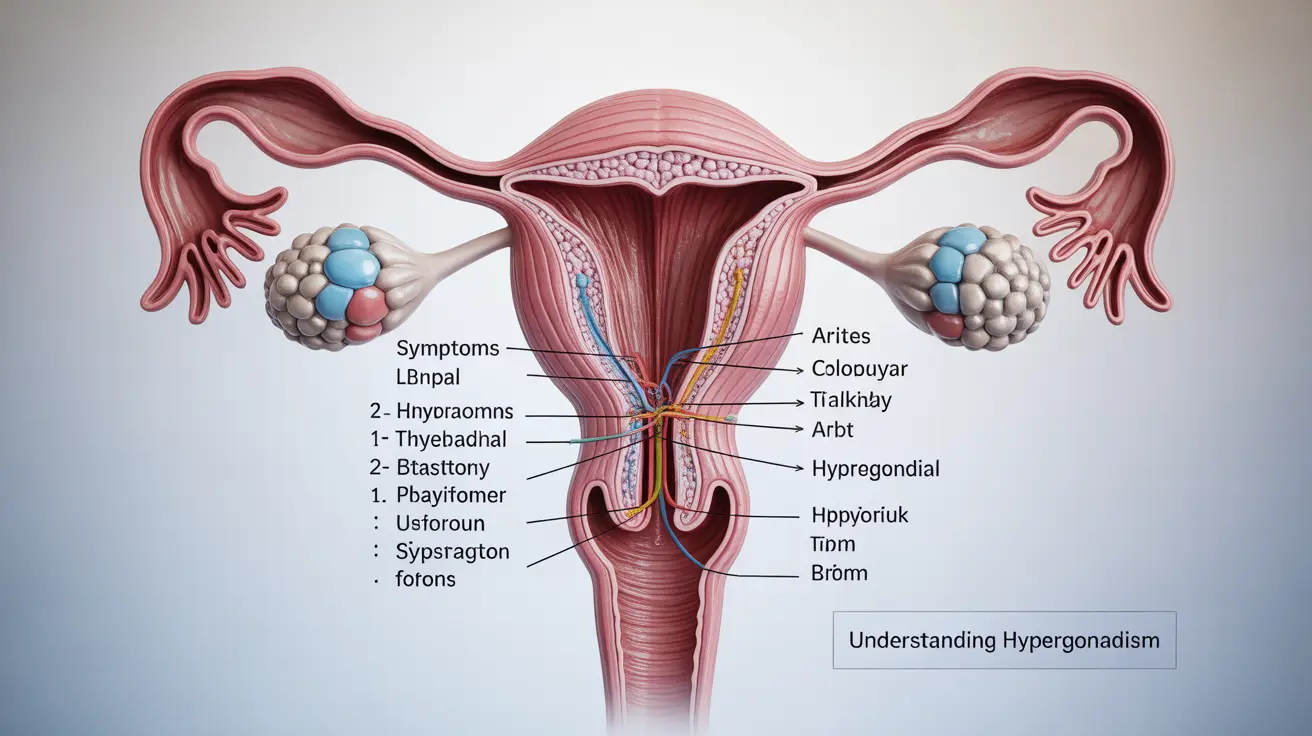Hypergonadism is a complex endocrine disorder characterized by excessive production of sex hormones by the gonads (ovaries in women and testes in men). This condition can significantly impact reproductive health, physical development, and overall well-being. Understanding its causes, symptoms, and available treatments is crucial for proper management and preventing potential complications.
While less commonly discussed than its counterpart hypogonadism, hypergonadism requires careful medical attention and appropriate intervention to maintain hormonal balance and preserve fertility. This comprehensive guide explores the key aspects of this endocrine disorder and its effects on both men and women.
Understanding the Causes of Hypergonadism
Hypergonadism can develop due to various underlying conditions and factors affecting the endocrine system. Common causes include:
- Tumors in hormone-producing glands
- Genetic disorders affecting hormone production
- Certain medications and supplements
- Exposure to endocrine-disrupting chemicals
- Autoimmune conditions
Environmental factors and lifestyle choices may also contribute to the development of hypergonadism, though the exact relationship isn't always clear. Understanding these risk factors is essential for both prevention and treatment.
Recognizing Symptoms in Men and Women
Symptoms in Men
Male hypergonadism often presents with distinctive symptoms related to elevated testosterone levels:
- Early onset of puberty in young males
- Excessive muscle mass development
- Increased body hair growth
- Aggressive behavior
- Acne
- Changes in libido
- Enlarged prostate
Symptoms in Women
Women with hypergonadism may experience symptoms related to elevated estrogen or androgens:
- Irregular menstrual cycles
- Excessive body hair growth
- Acne
- Changes in voice pitch
- Weight fluctuations
- Mood changes
- Fertility issues
Diagnostic Process
Diagnosing hypergonadism requires a comprehensive medical evaluation, including:
- Detailed medical history review
- Physical examination
- Blood hormone level tests
- Imaging studies (when necessary)
- Genetic testing (in some cases)
Healthcare providers may also conduct additional tests to identify underlying causes and potential complications. Early diagnosis is crucial for effective treatment and preventing long-term health issues.
Impact on Fertility and Reproductive Health
Hypergonadism can significantly affect fertility in both men and women. The excessive hormone production can disrupt normal reproductive processes, leading to:
- Irregular ovulation in women
- Reduced sperm production in men
- Changes in reproductive organ function
- Increased risk of reproductive system complications
Treatment Approaches and Management
Treatment for hypergonadism typically involves a multi-faceted approach:
Medical Interventions
- Hormone-blocking medications
- Surgery (if tumors are present)
- Regular monitoring of hormone levels
- Treatment of underlying conditions
Lifestyle Modifications
Supporting medical treatment with lifestyle changes can help manage symptoms:
- Maintaining a healthy weight
- Regular exercise
- Stress management
- Avoiding endocrine-disrupting substances
- Following a balanced diet
Frequently Asked Questions
What are the common causes and risk factors of hypergonadism?
Hypergonadism is commonly caused by tumors in hormone-producing glands, genetic disorders, certain medications, and exposure to endocrine-disrupting chemicals. Risk factors include family history of endocrine disorders, certain medical conditions, and exposure to environmental toxins.
What symptoms should men and women look for to identify hypergonadism?
Men should watch for symptoms like excessive muscle development, increased body hair growth, and early puberty onset. Women may experience irregular menstrual cycles, excessive body hair growth, and changes in voice pitch. Both genders might experience acne, mood changes, and fertility issues.
How is hypergonadism diagnosed by doctors?
Doctors diagnose hypergonadism through comprehensive evaluation including blood hormone tests, physical examinations, medical history review, and sometimes imaging studies or genetic testing. Regular monitoring helps track hormone levels and treatment effectiveness.
What are the potential complications of untreated hypergonadism, especially on fertility?
Untreated hypergonadism can lead to fertility problems, reproductive organ dysfunction, increased risk of certain cancers, cardiovascular issues, and psychological effects. It may also impact bone density and metabolic health.
What treatment options are available to manage hypergonadism and reduce hormone levels?
Treatment options include hormone-blocking medications, surgery for tumor removal if present, and management of underlying conditions. Lifestyle modifications, regular monitoring, and ongoing medical supervision are essential components of treatment.




